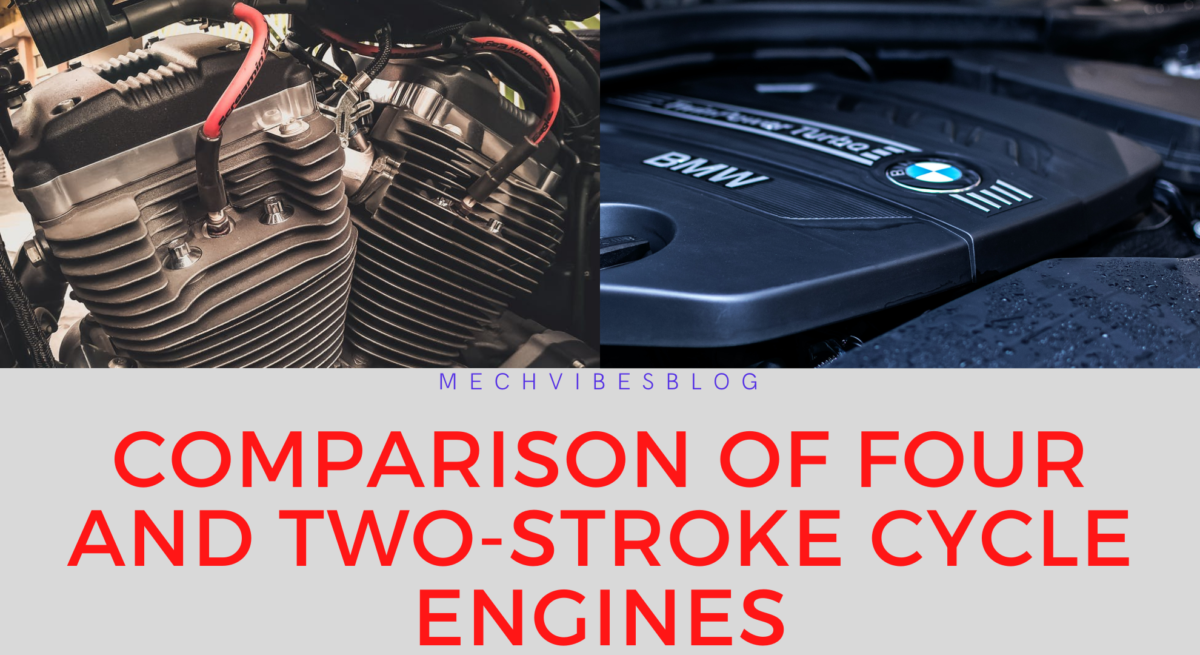
Comparison of Four and Two-Stroke Cycle Engines
In Automotive, a stroke can simply be define as the movement of a piston from top to bottom. Two and four stroke cycle have been the two main combustion type as automotive and cars exist.
Most vehicle that are powered by gasoline runs through a two or four stroke cycle. Are you deciding on purchasing a new or used engine? one of the questions to ask yourself is: what kind of engine do I want and how does it work? What are the differences between a two-stroke engine and a four-stroke engine, and which is better?
Well, you may have come across or heard of these terms, they may have left you wondering, what’s the difference? , here’s what you need to know in terms of durability, efficiency, design, capacity and maintenance.
Difference Between Four and Two Stroke Cycle
Four-Stroke Engine
Thermal efficiency is higher.
Four-stroke engines contains valves and valve actuating mechanisms to open and close the valves.
Thermodynamic cycle is completed in four strokes of the crankshaft.
Heavier flywheels is used to obtain a complete turning moment.
High initial cost for first time buyers.
Volumetric efficiency is more due to more time for induction.
Used where efficiency is important, like in cars, buses, tractors, industrial engines, aeroplanes etc.
Two-Stroke Engine
Thermal efficiency is lower.
Two-stroke engines have no valves but only port-conventional exhaust valve.
Thermodynamic cycle is completed in two strokes of the piston.
Lighter flywheels are used to maintain its turning uniform.
Low initial cost for first time buyers.
Volumetric efficiency is low due to lesser time for induction.
Used where low cost, light weight and compactness are important. Eg, motorcycles, scooters, etc.

